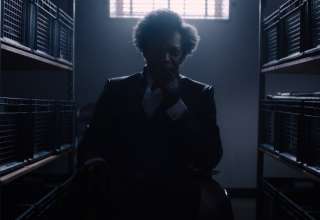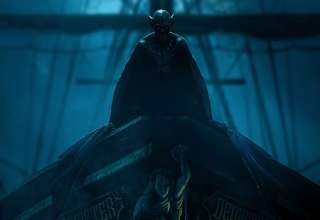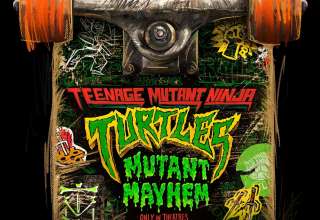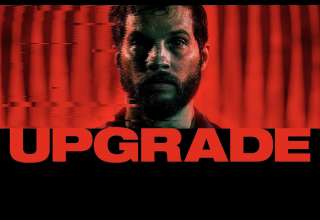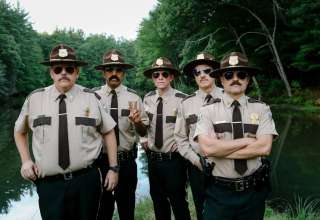When looking at the cast of Me and Earl and The Dying Girl, it’s clear that we have three young actors finding their way through the entertainment business. While Thomas Mann and Olivia Cooke have been at it for a little while now, RJ Cyler Jr. is virtually new here as he’s now just getting the first significant opportunity of his career. I was able to talk to all three of them about that and other things concerning their lives as young Hollywood upstarts looking to find their place.
Cinematic Essential: What do you guys think of the film’s favorable reception so far?
Olivia Cooke: It’s crazy. We already knew going into it that it was the best script that we had ever read.
Thomas Mann: You can’t prepare for the success, but I was so excited just to get the opportunity to make the movie. It was a huge responsibility and I just wanted to get it right and tell something deeper and more honest… I didn’t think of it as a teen movie. The response has been overwhelming and it’s been a very emotional ride. It was so close to us for a very long time and now people are having their own personal experiences watching it, and that’s really, really amazing.
CE: How would you compare your experience with this film compared to something like The Signal?
Cooke: Wildly different. It all depends on the people, the crew, the material that you have. My part in The Signal was relatively small and not as fleshed out as my role as Rachel in Me and Earl and The Dying Girl. For me this was just a feast. For me to be able to get my hands on it and challenge myself with the character and just be a part of an amazing film.
CE: Seeing as this is your first experience starring in a feature film released for the big screen, what was this all like for you?
RJ Cyler: It was a lot of fun. For the first thirty minutes of this experience, I was a little nervous, then I met Thomas and Olivia and was like “Okay, I don’t have any reason to be nervous, because they’re fun and genuinely good people.” We built a friendship before we really got into filming and it made me extra comfortable to be on set and to be who I needed to be to make this character work. So it was like the perfect experience as a first acting job. Now it’s like the bar is set so high that’s it’s kind of depressing. (Laughs)
CE: How do you find that balance of portraying a likable teenage boy with the kind of issues your character has?
Mann: I know what you mean, because I find self deprecating humor becomes so obnoxious. It’s like no one can feel sorry for you if you’re always feeling sorry for yourself. I like the fact that he was smart enough to know what kind of person that he should be. He has all the answers but he’s too lazy or stubborn to make use of them and is too afraid to leave his comfort zone. I like the way that he dealt with situations. I saw it as someone who kind of maybe knew what he should be saying, but just said what he was thinking instead. You can’t judge someone for being honest, and I felt if I was just honest with the character, people would relate to that. Being the person I was in high school, I don’t think I would have known what to do in a situation like this. So it was all about embracing the awkwardness and the selfishness of teenagers. And kind of just having fun the way that he navigates this emotional time in his life and discovering his emotions.
CE: Your character has a wonderful sense of humor.
Mann: His sense of humor was great. It was so well written that you didn’t need to punch the jokes. With Alfonso [Gomez-Rejon] it was always about doing less with jokes and that usually ended up being funnier. There’s times where it’s sort of over the top. There’s moments where you can go big, but for the most part, they come from a really honest, sincere place.
CE: You guys all play teenagers. For all of us, that stage probably feels like the toughest period we could ever experience.
Cooke: Everything is heightened. My sister’s fifteen and everything is a massive deal. When she arguing with my mom. My mom has to say one word and my sister screams. That’s just the way teenagers are. They’re going through all of these hormones, they’re going through all of these changes. Their reactions are so much more severe than when you’ve dealt with things a few times and you know how to handle things. When you’re a teenager, you’re like Bambi. You’re still trying to walk, you haven’t found your footing yet.
CE: Now, Olivia, you star as a character with cancer undergoing treatment. Were you hesitant about shaving your hair off?
Cooke: Well, auditioning for this role, it wasn’t ever mentioned that the actress had to shave her head. I always thought it was gonna be a bald cap, but then I sent Alfonso this really panicked email two weeks before shooting saying “Bald caps are gonna look so bad, they’re gonna be so much hair, I’m going to look like an alien. I don’t want anything I’m doing to take people out of the movie. Could we just shave the head. So they spoke to my people – I’m on this T.V. show (Bates Motel) – they spoke to the producer and he was fine with it and I’m like “Oh, sh*t! I really gotta do this now. I thought maybe they would say know so I’d look cool anyway for suggesting it. When we came to doing it, we just shot it and did it all in character. RJ and Thomas cut these little pigtails off my head and we shaved a mohican in. Then I was shaving the front bit for the first time and feeling my scalp. And Thomas was cleaning up the back. The whole point was to try and take control of the cancer before it took control of Rachel. So I tried not to cry and this weird scream cry came out of my throat. A sound I’ve never produced before and started crying and Alfonso just held me for a while. It’s bizarre. It’s a surreal experience just being used to having hair for twenty years and not having any in just fifteen minutes. It’s crazy.
CE: How did you feel about working with such a veteran laden supporting cast?
Mann: I was really just excited. Just excited to work with people like Nick [Offerman], Molly [Shannon]. We were nervous to meet them, but then working with them they were so much fun and excited to be working on the project. That made me feel great. I guess it’s intimidating trying to be funny around people who are so funny, but I couldn’t have asked for a better supporting cast. They were so excited to be there and wanted to make the movie the same way that we did. They didn’t act like they were doing us a favor or anything like that.
CE: Any embarrassing moments when trying to be funny in front of them?
Mann: Well, anytime you talk to Nick he’s just internalizes it, and when he speaks, he’s so intelligent and deliberate. He takes his time with his words, so you’ll be talking to him and he won’t respond for a second and you’re like “Oh, gosh. I sound so stupid.” and you beat yourself up about it. He’s genuinely like the nicest person. He was only there for a week and a half, but it felt like it was much longer.
CE: I’m sure all of you had to do it, but for you RJ, what was it like doing the more emotional scenes without rehearsing them?
RJ Cyler: When you’re in that moment in real life, you can’t rehearse how you’re going to cry or how you’re going to react. You’re not gonna say “Okay, I’m going to cry like this and drop to my knees here. Since she’s doing really bad, I’m going to let out this scream that makes me sound like a chihuahua falling down the stairs or something. It was a way that Alfonso let us be free with these characters and be honest to the moment. That’s how I look at it, because I know it took me a while to get to that emotional state because I’m not emotional. It made it way easier for me to just push out honest acting. Most of it was just stuff I didn’t deal with that happened early in my life, because I just push it down and play XBOX. All of that came out during these emotional times and it worked.
CE: How do you fit doing movies into your schedule with you shooting Bates Motel?
Cooke: Bates Motel is four months out of my year, so I have about eight months to do whatever I want. Luckily, Bates Motel has put me on the map – especially in America – to be able to do movies. And they write well for me, so I get to do really good scenes and that’s showcased to people in the industry that watch it. Then I get shortlisted for things and get to be exposed to scripts that otherwise without the show would never be exposed to. I’m lucky to be doing more and more interesting movies. Even though it’s been a relatively short time, I feel like it’s taken me a while to work up to this. You have to do a few for them before you can do stuff for yourself.
CE: How do you want people to see Rachel?
Cooke: The main goal with Rachel is that you never want her to be seen as a victim. You never want to play the tragedy. It’s an awful thing that she’s going through, but Rachel is such a strong character. She’s the strongest one out of the Greg/Rachel relationship. She wants to nurture Greg and make sure he realizes his full potential.
CE: How did you prepare for that role?
Cooke: I went to meet a girl at the children’s hospital at UCLA, and she has the same leukemia that Rachel has and had gone through rounds of chemotherapy that hadn’t worked, so she was going getting a bone marrow transplant and I just sat with her and her dad and talked with her. All I know is that the physicality… she was just so still and had no hair. Automatically, you’re kind of like a newborn baby. You don’t really have any identity. It’s much harder to see how a person is. Especially for a girl, your hair tells so much about yourself. She had all these One Direction posters on the wall. She was obsessed with pop culture, she had all these crushes. Even though I always knew this, but it just reinforms the fact that you have this illness, but you don’t lose yourself, you don’t lose your personality or what you like and dislike. Alfonso and I set out this chart of chemotherapy and the stages of cancer that spans Rachel’s character so we could draw upon that and mental debilitation or when she’s healthy, we could draw upon that. So that helped and really informed. Also, you don’t really know much about Rachel in the story, but we set up a huge backstory of what she wants to do after school, so that also informed me and my performance. Shaving the head was a massive thing that helped me. I don’t think I would’ve been able to get that same performance if I hadn’t have done that. Obviously I can’t experience the cancer thankfully, but that was the least I could do to try and get into the role.





